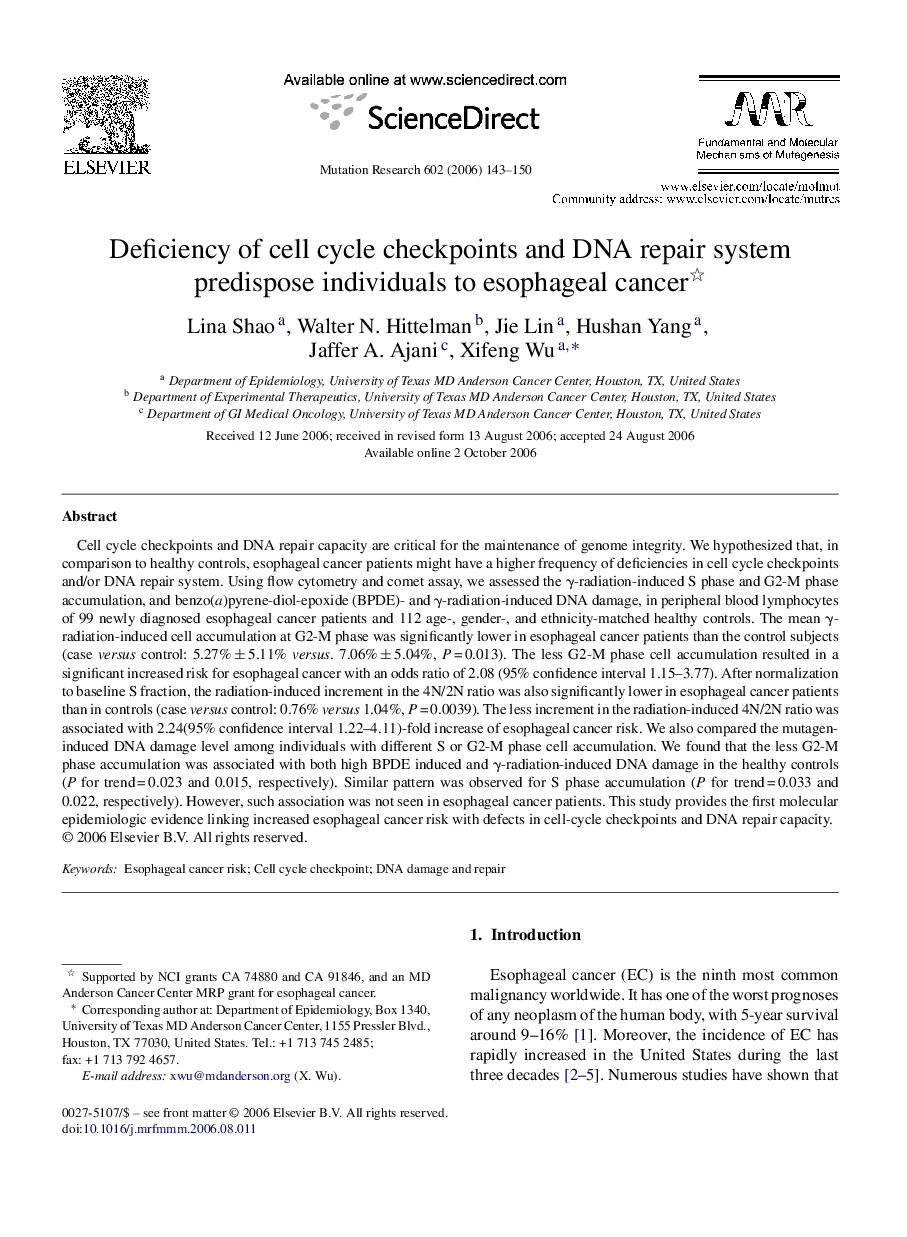| کد مقاله | کد نشریه | سال انتشار | مقاله انگلیسی | نسخه تمام متن |
|---|---|---|---|---|
| 2147410 | 1548416 | 2006 | 8 صفحه PDF | دانلود رایگان |

Cell cycle checkpoints and DNA repair capacity are critical for the maintenance of genome integrity. We hypothesized that, in comparison to healthy controls, esophageal cancer patients might have a higher frequency of deficiencies in cell cycle checkpoints and/or DNA repair system. Using flow cytometry and comet assay, we assessed the γ-radiation-induced S phase and G2-M phase accumulation, and benzo(a)pyrene-diol-epoxide (BPDE)- and γ-radiation-induced DNA damage, in peripheral blood lymphocytes of 99 newly diagnosed esophageal cancer patients and 112 age-, gender-, and ethnicity-matched healthy controls. The mean γ-radiation-induced cell accumulation at G2-M phase was significantly lower in esophageal cancer patients than the control subjects (case versus control: 5.27% ± 5.11% versus. 7.06% ± 5.04%, P = 0.013). The less G2-M phase cell accumulation resulted in a significant increased risk for esophageal cancer with an odds ratio of 2.08 (95% confidence interval 1.15–3.77). After normalization to baseline S fraction, the radiation-induced increment in the 4N/2N ratio was also significantly lower in esophageal cancer patients than in controls (case versus control: 0.76% versus 1.04%, P = 0.0039). The less increment in the radiation-induced 4N/2N ratio was associated with 2.24(95% confidence interval 1.22–4.11)-fold increase of esophageal cancer risk. We also compared the mutagen-induced DNA damage level among individuals with different S or G2-M phase cell accumulation. We found that the less G2-M phase accumulation was associated with both high BPDE induced and γ-radiation-induced DNA damage in the healthy controls (P for trend = 0.023 and 0.015, respectively). Similar pattern was observed for S phase accumulation (P for trend = 0.033 and 0.022, respectively). However, such association was not seen in esophageal cancer patients. This study provides the first molecular epidemiologic evidence linking increased esophageal cancer risk with defects in cell-cycle checkpoints and DNA repair capacity.
Journal: Mutation Research/Fundamental and Molecular Mechanisms of Mutagenesis - Volume 602, Issues 1–2, 1 December 2006, Pages 143–150